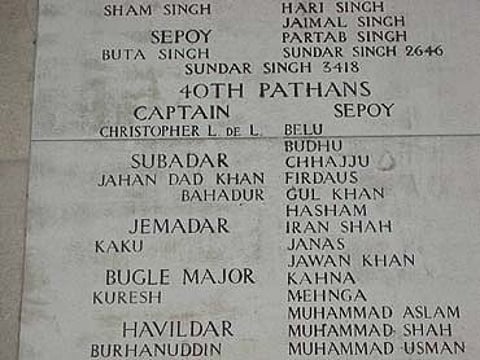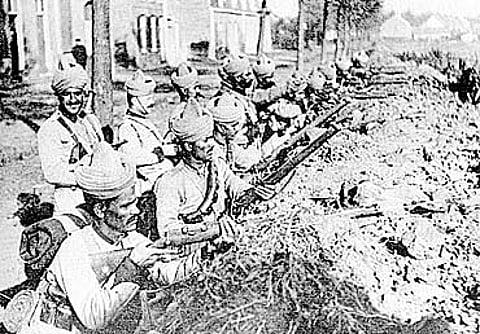Exported Martyrdom
More Indians than Belgians died warding off German forces at Ypres

Sugata Bose, professor of history and director of the South Asia Initiative at Harvard University, agrees. He gave the example of Maj Gen Charles Townshend, who commanded Indian troops in the 1915-16 Mesopotamian campaign. The general wrote: "Indian troops are utterly unfitted for modern conditions of war under periods of great stress. In stress or siege they lose spirit quickly. The British soldier is simply splendid, the more trouble increases, the more cheery he gets." According to Bose, "The use of colonial troops as cannon fodder in imperialist wars was undoubtedly unethical and constituted the most morally corrosive dimension of colonial rule."
The British colonialists devised a system which went down from the top to the bottommost rung of their administration in India to feed the war machine. Ranajit Guha, a profoundly influential historian of subaltern studies, says that while officially there was no conscription, the British rulers encouraged Indian landlords to prove their loyalty by recruiting jawans under a quota system. "This soon developed into a sort of loyalty race with the provinces competing with one another. For the greater part of the war's duration, the Punjab government proved the most loyal—"patriotic" in the vocabulary of official war propaganda," Guha said.

Under this sham autonomy tightly controlled by the British, landlords were rewarded with "khitabs" or titles such as Rai Bahadur and Khan Bahadur for sending thousands to their death. "They spearheaded the recruitment in rural communities and small towns through their agents and, not infrequently, muscle-men were combing the wards and mohallas, coaxing and arm-twisting tenants, farmers, small traders to send the able-bodied youth of their families," Guha said. Coercion increased as news trickled back of large numbers of deaths and injuries and young men began evading recruiters. "Most pathetically, a widespread proxy system developed in the Punjab, whereby a prosperous villager would buy a poor neighbour's son and donate him to the recruitment centre as his own contribution. The abuse was known to the superior district officials, but they took little notice," Guha said.
British intelligence censored the letters from Indian sepoys in the fields of Flanders. Guha, who has read many of these letters, says the happiest were often "accounts of brief visits to villages close to the battlefields and the hospitality of native residents." The sadder ones, often written from hospital beds, were full of longing for home. "One that sticks in my memory was from a soldier whose severe injuries didn't prevent him from worrying about his bansuri he had left behind and asks his brother to keep it safely for him until he returns."
No one knows if he did.
Tags